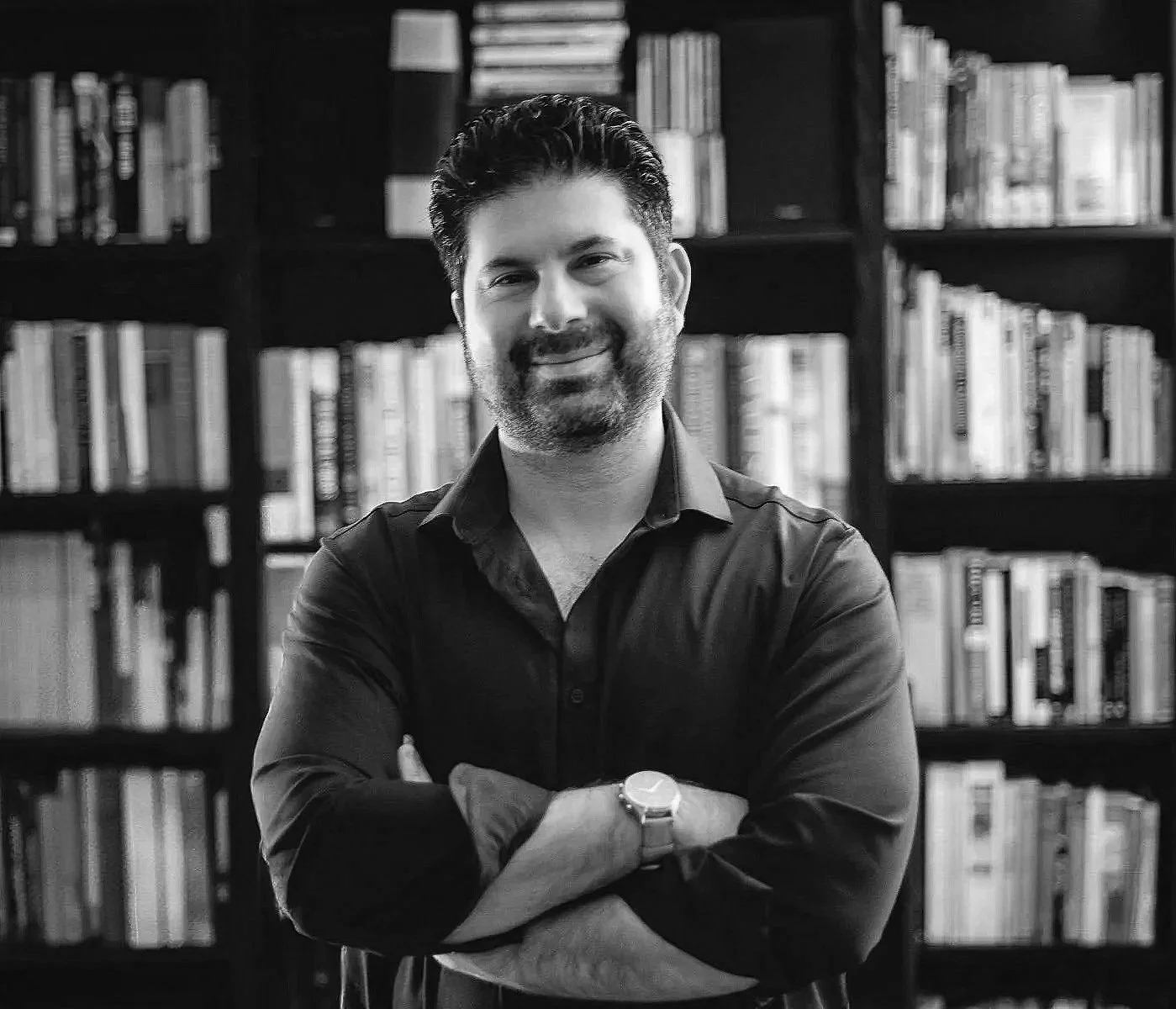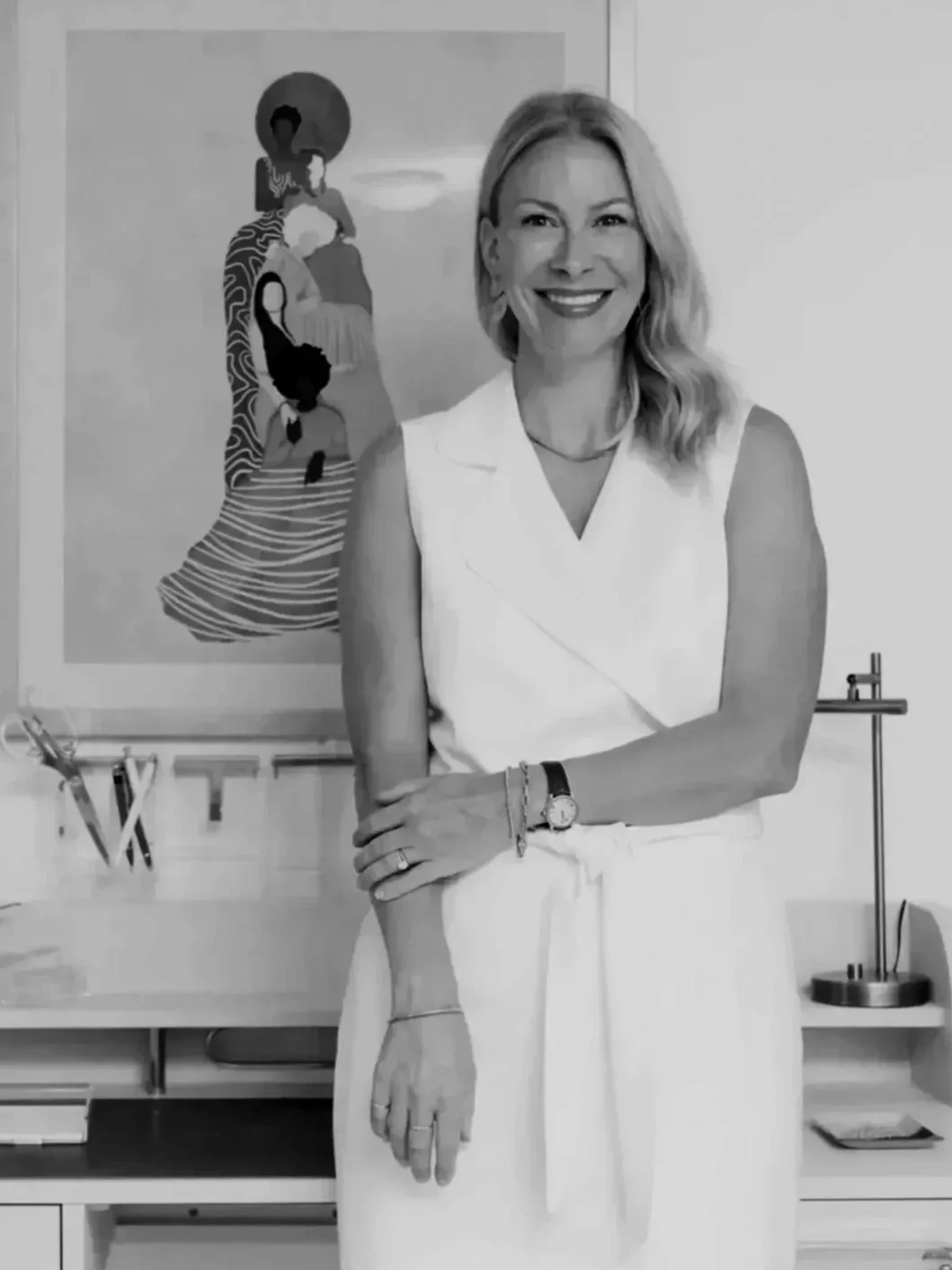228. dr. angela duckworth on how to be gritty + set yourself up for SUCCESS!
listen to this episode:
Tune in and subscribe on your favorite platform: Apple Podcasts | Spotify | YouTube | Amazon | GoodPods | Castbox | iHeart Radio | overcast | pocketcasts
today’s guest is dr. angela duckworth— the rosa lee and egbert chang professor at the university of pennsylvania and faculty co-director of the penn-wharton behavior change for good initiative. a 2013 macarthur fellow, angela has advised the world bank, nba and nfl teams, and fortune 500 ceos.
in this episode, we break down the psychology behind what makes people successful. this episode is full of tips and hacks on increasing your grit and self-control to achieve the best outcomes in life.
we talk about:
what makes certain people have more success than others
the psychology of self-control, motivation, + grit
reverse engineering the life you want through the three boxes model
key differences between grit + self-control
tips for improving your self-control + achieving your goals
how to find your passion in life
trying to succeed while avoiding perfectionism + burnout
sampling + why that’s so important for your future
having a support system in order to succeed
how the internet + ai have changed gen z’s work ethic
her rapid fire responses to popular questions
+ so much more!
Mentioned:
SHOP GUEST RECOMMENDATIONS: https://amzn.to/3A69GOC
About She Persisted
She Persisted is THE Gen Z mental health podcast. In each episode, Sadie brings you authentic, accessible, relatable conversations about every aspect of mental wellness. Expect evidence-based, Gen Z-approved resources, coping skills (lots of DBT), insights, and education in each piece of content you consume. She Persisted offers you a safe space to feel validated and understood in your struggle while encouraging you to take ownership of your journey and build your life worth living.
a note: this is an automated transcription so please ignore any accidental misspellings!
Dr. Duckworth: [00:00:00] We should try to reverse engineer the life we want. From my standpoint, as a scientist who has studied world class achievers,
how can we have large goals but not have extreme perfectionism and stress and overwhelm the life advice that applies at any age? How can we think more effectively so we can have that final outcome that we want?
This is a blueprint for all
human behavior.
Everything can be traced back to.
Sadie: Welcome to She Persisted, the Gen Z Mental Health Podcast. I'm your host, Sadie Sutton. Let's get into it.
hello. Hello and welcome back to She Persisted. I am so happy you are here for this episode because this is. Probably the greatest episode we've released thus far. Top like three podcast guests I've dreamed of. And I literally wrote my early decision application to Penn about this guest,
and I fought tooth and nail to take this class all four years at Penn. Took it my senior year. It truly changed my life, I think this conversation will do the exact same thing for you. So many of us in Gen [00:01:00] Z are incredibly ambitious. We have really big goals for ourselves. Almost 80% of Gen Z believe that they will get to where they wanna be in life, which is significantly higher than both the general public and millennials.
But there is so much more to being a high achiever, reaching success than just setting a goal.
And so a lot of us are left wondering how do we turn those beliefs and goals into reality? By the end of this episode, you're going to learn exactly how you can use psychology to become successful in your field achieve those goals you've set. These skills will serve you well in any stage of life, especially if you're just starting your career or figuring out your passions in high school and college. So without further ado, let's dive into this episode featuring Dr.
Angela Duckworth, a psychologist at the University of Pennsylvania, the number one New York Times bestselling author of Grit, a 2013 MacArthur Genius Grant fellow, a world renowned speaker whose TED Talk has been viewed over 16 million times and the expert in using grit to achieve your long-term goals. And soon you will be too.
Angela Duckworth, welcome to She [00:02:00] Persisted.
Dr. Duckworth: I'm so excited to be with you,
Sadie: Sadie. This has been like five years in the making. I was just telling you that I wrote my early decision essay about Penn being like, I'm so excited about this research happening, reading GR high school like.
Changed my life and
Dr. Duckworth: you persisted.
Sadie: I did. I
Dr. Duckworth: think I have like the, she persisted quote, like somewhere on the amazing, it's like, it's one of my
Sadie: favorites. And my dad like saw it on a t-shirt when I was going through mental health treatment and he was like, this just reminds me of like, Hugh and what you're going through, like you keep persisting.
And then when I wanted to a podcast, I was like, it's meant to be.
Dr. Duckworth: Well as you know, I think your dad is very gritty.
Sadie: It's true. It's true. , Speaking of Britt, we're gonna do like a kind of all-encompassing psychology of effort conversation today. , As I've heard you kind of describe these concepts and topics, and especially in the context of Gen Z \ but trying to develop it and understand it, , and the ways that we can think about these concepts and mechanisms. To give ourselves the best chance of, [00:03:00] thriving. , So I'm wondering if you can ground just a little bit at all these like pop psychology verbs that we have and misuse in our day-to-day life.
We are gonna talk about quit, we're gonna talk about self-control. Motivation can play into that. , Before we dive into like the three boxes model and how will these things fit into those areas, can you give us just some, like a basic framework, what those definitions are and what they aren't and how we understand the psychology of effort?
Yeah. Well, Sadie, I
Dr. Duckworth: should say that when I started graduate school, all the verbiage, you know, all the vocabulary was really, you know, beyond me. Because I don't know if I ever took psychology as an undergraduate. Maybe I did take one class and I did have a job in a psychology lab, but really like, you know what, what, you know, what is even motivation?
that was something I didn't have an experience with. I was 32. I had come out of teaching. Classroom teaching, teaching math to high school students. , And , for one year that was very long. Typical school students, like kids going through [00:04:00] puberty, trying to learn algebra. But all that did gimme these questions.
I didn't have the language, but I did have questions. I wanted to know why some people, why some kids, but just why some people were, were so much more successful than other people when it wasn't immediately apparent that they were, you know, like leagues smarter, right? So it was like, okay, something is missing here.
That led me to motivation, right? I didn't know exactly what to call it, but effort, motivation, I think in terms of the words that you just named now I can say since I did go to graduate school and I came to appreciate some of the nuances, right? And I think that's maybe one of the things I, I love about your podcast.
You're trying to get one level or more deeper than like bumper stickers. and I think that's really helpful for actually making this, . Science actionable in your life. Self-control refers very specifically to the dilemma that we all face, on a kind of hourly basis, which is there's something you can do that makes you feel really good right away, [00:05:00] but there is something else that you could do that would make you feel even better, but not right away.
So for example, even reading a book, right? Which, , as you know, reading is down right across all age groups, including yours. and one reason is that actually reading does make you feel good and it makes you feel good, especially in the long run because I think it gives you ideas and thoughts and insights that maybe you can't get any other way.
However, there is something else that you can do that is easier and frankly, maybe in the moment a little more enjoyable, which is like, go on your phone and like, you know, find the most, , well, you don't have to find it. It just gets served up to you, like whatever colorful. Clever, usually funny musical, whatever video.
So that's an example of a self-control dilemma. But you know, what you choose to eat, like whether you should, get up off the couch and actually start going to bed versus like, stay up for a couple more minutes. There are all these [00:06:00] dilemmas that's self-control. The, the ability to resolve those dilemmas in the favor of your future self and not just your present self.
Motivation is more generally kind of like, , wanting to do things. So motivation is, you know, I'm motivated to go to graduate school. I am, I am motivated to get up off the couch and go to bed. But you know what? Motivation can also be like, oh, I'm motivated to watch the next cat video. So motivation doesn't always mean like, oh, for your long-term self.
It's like an umbrella term. For, for things that we want, for the processes of, of wanting and so forth. And then finally, I think, , just to, you know, to clarify the definition of one term that I'm familiar with, grit. So grit is a particular kind of motivation. It's not the same thing as self-control. Self-control is like, Ooh, I know this is gonna be better for me.
Even five minutes from now. I mean, how many of us have eaten something? And like five minutes later you're like, definitely shouldn't have eaten that. With grit, it's really about very long term goals. So the timescale of grit is [00:07:00] months, years, decades, and some extent of lifetime. It's pursuing goals over extremely long timeframes with , devotion, with passion, and then also with perseverance.
So the enemies of grit are not momentary. Temptation. The enemies of grit are not knowing what you wanna do with your life and also not being able to be resilient in the face of setback.
Sadie: One way that you framed these processes with like self-control and what we're motivated towards and like how gritty we are, what our interests are in was the three boxes model or process model.
And I think it's a really helpful way for us to understand at what point we can improve our or our self-control or a general motivation. And I think if we all under a certain three boxes model, it would, we'd be so much better. So life changing. Okay.
Dr. Duckworth: So I want to tell you about the three boxes model by, by kind of continuing my story.
So I'd been a classroom teacher, , and some other things for about a decade, a good graduate school. I'm, you know, learning the [00:08:00] vocabulary, I'm like, oh, I guess I wanna study motivation. I guess that's the word for it. And, you know, start studying grit. That was, , in 2002 that I went to graduate school.
But in 2011, so that's nine years later, I had finished my PhD. , I guess I was an assistant professor, so I was a young professor or you know, rookie professor. And, , I go to this meeting at Yale and I remember it was a cold November day and I am, you know, past the agenda, which, you know, a piece of paper about the size of this.
And, at the top of it was the theme of the conference. There were about maybe a dozen or two dozen scientists, and we all studied aspects of motivation or goal pursuit. And at the top of the agenda was the simplest question, how do we change it was like in italics, like, how do we change? And at that event, at that meeting, you know, it was kind of like a talent show or a show and tell, I guess.
It's like every professor got up and, and said [00:09:00] what they, maybe you say like a TED conference, right? Like you kind of said your piece, right. This is what I think. And the very first talk on the agenda was a Stanford professor, maybe like the world expert, certainly a world expert in emotion and emotion regulations.
His name's James Gross, and he puts up this PowerPoint slide and he says, you know, everyone knows that emotions are really hard to, , manage. And I'm thinking to myself like, oh my gosh, I have such a bad temper. Like that is the emotion I struggle with. And he said, you know, we all know what it's like to try to like suppress an emotion.
and we all know how, you know, badly. That usually turns out, and I'm thinking to myself, yep. It almost never works for me. I like find it very hard. It's like, I feel like the horses have left the barn when I lose my temper. You know, especially honestly with like my, my husband or, or, you know, like my kids.
So, so he says like, but you know, if you really understand where emotions come from, then you can. Be much more effective in managing them. And he puts up this boxes and [00:10:00] arrow diagram. , And I'll simplify, 'cause I call it three boxes, if you like, do the whole thing. There's like more boxes and arrow, but let's just say that there are three boxes.
And the last box is how you respond to your situation. Like with anger, with fear, with anxiety, with sadness. , It also includes like actions. Like I pick up the cup, I put down the cup, I eat the ice cream. I, I go for the run. So the box three in these three boxes is your response to your situation, right?
And he was like, you know, most people when they, you know, feel like they're getting really mad, just try to like, not be mad. when they feel like they're lazy, they just try not to be lazy. When they feel like they want to eat ice cream, they just try not to eat ice cream. He's like, okay, you can use willpower, you can use brute force willpower.
But what if you understood what happened before box three? And then he points to the box play. He is like box two is your thought. It's like how you make meaning of your, like, what's going on here? Right? And it's all in your head. So you're like, oh hey cat video. Or like, well, I, you know, hate my [00:11:00] brother-in-law.
Like, whatever it is that's in your box two sort of sets up box three. So for me, I realized, , after many more, , hours of thinking about it than I had at that one conference in November, 2011, is that when I get really mad. I think that what goes through box two for me, my thought is that. My rights are being violent, that I, that I'm not being appreciated, right?
So when I actually trace back, like when I've really lost my temper with my kids or my husband, it's because I feel like I have been like a saint and I have not been appreciated, right? So I'm thinking to myself like, wow, this is pretty revolutionary. And by the way, Sadie, as you well know, like a lot of therapy is about changing box to thoughts, right?
It's like, wait, why are you feeling that way? Like, why do you not wanna get out of bed? Or why do you use your temper? But James wasn't done yet because there was another box on the screen, and he said, but where do our thoughts come from, right? Obviously we have schemas, we have like habits and our mindsets.
He's like, but really what [00:12:00] you wanna think about is that every. Response and every thought about, you know, that leads starts in a situation like, where are you? And know, I, I looked around and I was like, well, I'm, I'm in a darkened amphitheater with a lot of other professors. That is a certain kind of situation.
Box one is your situation, so where am I? Right? Before I had the thought that I'm not being appreciated, and I remembered this one time that I really lost my temper with my husband, Jason. So box three was losing my temper, , like really losing my, I won't describe it 'cause it's embarrassing. , And then box two was this thought of some version of like, you know, Hey, you don't appreciate me.
Like, do you see how hard I'm trying? Like I'm a saint. and box one was he had come home late and I had made dinner and it had gone cold and he hadn't called. and I thought to myself like, well, yeah, but I can't change that situation, right? Like, that happened. So, so why are you emphasizing in this talk that if you wanna control your emotions and control your behavior, [00:13:00] you should go all the way to box one.
Like I was like, I can't change that. But as James continued speaking, it became clear to me that like, maybe that night I couldn't change that situation, but I could change it in the future. Right? I could actually, for example, you know, at that time Jason and I were both working very hard. I could, for example, like at the end of my day, like literally pick him up to go home for dinner, right?
So now we're in a situation where we're like just together. , I could actually change box one by making dinner together, right? Like, you know, imagine that. So, so I guess I'll say this, Sadie, I think the three boxes model situation is box one. Thoughts are box two. Your response is box three. I have come to believe that this is a blueprint for all human behavior.
Everything we do, everything we say, and every feeling we have can be traced back to this kind of situation that leads to the thought, leads to response. And when I teach my classes now. I, [00:14:00] I say, look, we should try to reverse engineer the life we want. And instead of using willpower or even just like, change your mindset and your attitude, which of course we should try to do, we should set ourselves up for success.
We should set ourselves up to be our best selves by putting ourselves in situations and, and creating situations that, that naturally in a way bring out our best.
Sadie: So I wanna go through these different concepts that you've researched so extensively and talk about how we can set ourselves up for success.
Whether it's those contexts we put ourselves in, maybe it's to some degree the thoughts that we have. One of my favorite, like self-control things you taught us was like, imagine yourself in a movie and watch yourself doing the thing. Like the fact that it actually impacts our outcomes is crazy. , So starting with self-control, because I think that is what gets most confused with grit.
And this is why I loved taking that class because I was like, I am someone with self-control, with like not being on TikTok or like. Would never run a marathon, but I'm like, I am [00:15:00] really gritty in some areas and I pursuing that those are really different and I can be gritty and not like the most self-controlled person.
You have so much more grace and compassion for yourself, and then you're more motivated. Like again, the way we think about it has such an impact. , And I think also because of how we use like, grit colloquially as like white knuckling through a shitty situation. Mm-hmm. And like, just being more gritty, try harder.
And so I'm curious if we start with SelfControl so we can really understand how that's different from grit. What are the context we should put ourselves in?
How can we think more effectively so we can have that like final outcome that we want
Dr. Duckworth: when I started researching grit, I mean, you did the very simple thing. You don't need any statistics for you. You just like talk to people, like interview them.
I would, I would interview very successful people. Mm-hmm. Right. So Olympic athletes or the equivalent. So when you, well, not that, not, not yet. You maybe not athletics, but so that, right, sure. Exactly. Right. Like, so when I started interviewing these super achievers, , I, I found this kind of through [00:16:00] line of,
You know, they did put in a lot of effort, right? Yeah. But what I didn't find is them saying like, I forced myself to do it. Like, I hate my job, but I you know, white knuckle my way through. They actually used words like love, like, passion, , devotion. , More than one said, you know, I don't understand what people mean by work.
To me, it's all play. , Now of course if the, you know, conversation were long enough, they would talk about the parts of their jobs that, that were tedious, right? You know, there aren't many professors that I know who love to sit through faculty meetings. Right. And I'm sure when you have to, you know, whatever, edit a, a, a video, you know, well, maybe you love it, but there's gotta be some things that you don't love.
The only person I ever interviewed who couldn't think of anything that he didn't truly love at all, he was Will Schwartz, the editor of the crossword puzzle for the New York Times and now like, you know, the World Puzzle pages. And I was like, come on, there's gotta be something like, well. Maybe letting out the crossword puzzle, but then he like paused a beat and he was like, no, [00:17:00] that's actually good point too.
So the through line was really love. The through line was passion, right? , Now that automatically, I mean, right there sets you up for a distinction between grit and self-control. I, I mean, I need self-control to floss my teeth. I do not love flossing my teeth, right? I need self-control to do my physical therapy exercises because I have a hypermobile SI joint and it's like, you know, basically it's like quite literally having a pain in your butt.
It's like, okay, well I have to do these. They're just not fun. They're not anything I find interesting or enjoyable. , And not that hard, but like for 30 minutes a day I'm supposed to like, you know, like stretch my piriformis muscle and like, you know, work my hip flexor. So, so I would say that self-control is about doing the things that you have to do because it's better for your long-term self.
I mean, I will. Just be healthier. I, I mean, it will drive me crazy if I can't walk without pain. So that's a self-control, you know, dimension of my life. I think anybody can recognize. [00:18:00] And there's nobody on the plan who doesn't need self-control because there are, things that are more fun than physical therapy or, you know, for me, like sitting through a faculty meeting.
But, but grit in these interviews just had a very different portrait. And in fact, when I continued the conversation with many of these paragons of grit, right, who exemplified passion and perseverance for long-term goals, I gotta tell you, Sadie, more than a few actually brought up mental health issues with unbidden, right?
I mean, it wasn't really, like, I'm not politically trained, so I wasn't asking about things like that. But, you know, some would say, oh, by the way, I have a diagnosis of A DHD, you know, and I, I never outgrew it like some people do. Like, I find it very difficult to reign in my impulses, to force myself to pay attention to things that I don't find intrinsically interesting.
And so right there, I had evidence. Anecdotally, but I think really convincingly that you can be gritty, but not super high in self-control in the conventional sense. So I think that the, the [00:19:00] life advice that comes from that. Is that, you know, if grit is about having passion and perseverance for long-term goals, but not like fighting, you know, the hourly temptations, then any of us can have grit regardless of how much, you know, executive function or willpower we have.
Because you can first of all, set up your situation, so that you're not faced with temptations, which a lot of these paragon of grit said, but also we can set our, our life situations so that we're doing things that we love. Right? I, I have to say that I don't have to use a lot of willpower in my everyday life because I love teaching.
You know, I love students like you. I, I love reading these books, right? Like, , including Marie Kondo, which by the way has a lot of psychological wisdom. But, but I think that to me has like such a profound kind of like, oh, right. how do I set up my life?
My situation such that, I'm doing things that, that I, I have passion for intrinsically, and that also, you know, that remove temptation. So I'm not like constantly using my self-control muscle. [00:20:00]
Sadie: Before we talk about growing grit and establishing like what you are gritty and respect to, especially the young adult last thing on self-control.
If you have like a student listening and they're like, I hate this class, but for this larger goal of what I wanna do in my career, like I need an A or this is like a core requirement that has to be done. If you're giving them like a handful of tips they can apply to short term, have that self-control and get through the things that we have to do to understand the long-term goals, what are those tips?
So tip number one,
Dr. Duckworth: don't ever say to yourself, I gotta try harder. It never works. It really doesn't. Research is definitive. It's only tiring to make yourself try harder. It's the most intuitive thing, by the way. It's the thing that people say that, you know, oh, I didn't meet my New Year's resolutions. I, stayed up too late last time.
Tomorrow. I've gotta try harder, right? But it is the least effective and it is the most exhausting. So, tip number one is if you ever hear yourself talk like, God, I gotta try harder in this [00:21:00] class. It's like, that's not gonna work. Alright, so now I need, but that's a don't you need to do. So tip number two would be if you can put yourself physically in a situation, and I, I emphasize the physical, so put yourself in a physical situation that makes concentrating working hard and so forth easier.
Okay? Give you a specific example. In, in college I had to take this class on ancient Chinese pottery. It was like, it was like pottery from the Bronze Age in China, which I was just like, am I see another three legged urn I'm just gonna vomit. , That's all it was. It was like.
Darkened. You imagine how it's like darkened auditory was after lunch
and you know, he puts up the slide and he izing success.
I mean, like, everybody was like, falling asleep. And that pre concluded me. 'cause I, you know, I'm sure it was interesting to other people. It wasn't interesting to me. So, and so I was thinking to myself like, how am I gonna take into this class? Right? So I deliberately chose to sit in the very front row, right?
I was maybe like as [00:22:00] far away from the professor as you are from me. And I'll tell you, it's really hard to fall asleep. Like when you were, you know, sitting within arms reach of your professor, he was also louder. He was very soft spoken. But from the front row I could actually hear him, right. He didn't wear microphones.
I was just like, okay. So I him, yeah, I was like, you know, I was, I was there by the way. I was like the only kid in the front row row because of course everybody was in the back sleeping. So I think if you can think yourself, where do I wanna put myself physically? And, and when I say the students, I do an exaggerate sit in the front row.
Of every one of your classes, like every single one. And don't tell me there aren't seats in the front door. They're not all empty, right? and I think that that sort of goes, you know, beyond like where you sit in class, like where do you study, right? you have to figure out what works for you.
I think for some students, like studying in a really noisy place, like Starbucks is actually better for them. Like the white noise of just like things going on. For other students, it's the library. I always fell asleep in the library, so that wasn't for me. But you have to think about all these things tactically.
Like [00:23:00] if you were gonna set yourself up for success, like physically where you be. So that would be number two. And the third point is, you know, the other aspect of your situation, which we haven't talked about yet, but maybe the most powerful is the social aspect of your situation, right? So if you just audit your friendships, like do you wanna be like your friends?
I. You know, if the answer is yes, awesome, you have found your tribe right? So I, I'm gonna use this story of this 10th grade sophomore in high school, , who was being interviewed, like I was interviewing her and then a younger kid from the same school.
So it's like a 10th grader and maybe a fifth grader. And you wanna set yourself up. 'cause sometimes socially we haven't set ourselves up for success. So the 10th grader is giving advice to the, to the fifth grader. And you know, in all her years, I think she must have been like, whatever, 15 or 16 old, she's like, ah, I knew now.
She was like, what is your age? I find you then what? I know now. She's like shaking her head. You, she was a million years old and she's like, I would've chosen my friends differently. Because you start to act like your friends, you start to talk [00:24:00] like your friends, you start to dress like your friends you keep up on.
She was like, I got into the wrong crowd. Right? And it really took me off track for a few years. And then I, I righted the course and basically I think that we can. Set ourselves up for success when we put ourselves in social situations. I think who your friends are, who you hang out with, who you room with, and then mentors.
And if I, if I could just say Sadie, that, the life advice that applies at any age, and I really mean it, including at my age, is like, find a mentor. A mentor is somebody who's a few steps farther down the path who can turn back and lend you a hand, you know, oh, don't walk over there. It's really rocky.
And, and so I have benefited from mentors, , at your age earlier than your age. And at my age now, and, and I think when I, you know, think about this guy, James Gross, who I met at that conference in 2011, he immediately became a mentor. He was, farther down the academic path. He was a full professor.
, And, and he continues to [00:25:00] be, you know, one of the people I turn to when I need advice. And if I didn't have that advice. If I weren't in that social situation, I don't think I would, , I don't think I would be here.
Sadie: Yeah. What if we're not pretty? What if we don't have SelfControl? We take the scale like terrible.
We're like, oh no. Like that's not me.
Dr. Duckworth: I don't finish whatever I Yeah.
Sadie: Or like I remember in class everybody raised their hands for where they fell on the grid scale. Yeah. It was like a hundred percent. I think I gave you guys like a
Dr. Duckworth: sort of a stage model where I was like, stage 1, 2, 3, 4, 5, 6, and six is like, I have a calling, you know, like, come back in 20 years I'll be doing this the same
Sadie: thing.
So what if people are listening and they're like, I, I wanna. Sounds great. That I love, like I, I wanna have more SelfControl for those day-to-day things that I have to do. But I wouldn't say that this idea of grit or high SelfControl describes me currently. Yeah. Is it a tough
Dr. Duckworth: sentence?
Just, you know, [00:26:00] what we do?
So let's take grit in particular because I think you've, done a good job of helping me, you know, share the nuances between these two things. So let's take grit because I think most people who come to talk to me and ask me for advice are sort of more interested in wanting to have more grit. , Right. let's take passion in particular, because when I collect data on the grit scale, when I look at the scores, you know, there's, there's two sub scores. You get a passion sub score that's, you know, how devoted you are to something over time. And there's a perseverance sub score, which is how hardworking and resilient you are. And every time I've given the grit scale on average, perseverance scores are higher than passion scores.
In other words, people finding, you know, maybe more intuitive or easier to, work hard to, to be resilient. But what do I work on? Right? And that's the usual question for people. And, and I think when it comes to like finding that calling, right, developing that passion, the advice I have [00:27:00] is that you have to actually move like a para meum.
Right. In other words, like, you have to move gradually towards things that are. More energizing and away from things that are less energizing. So Paramecium, if you recall from your whatever, eighth grade bio or something, is a single self organism. It doesn't even have a brain.
Sadie: I thought we were talking about like a Greek mythology.
No, no.
Dr. Duckworth: there probably are lots of them actually. Like
Sadie: I do not go towards biology. Biology. That was my
Dr. Duckworth: major actually. I was a major a doctor. Well, that's okay. Well you can, you can be in parum single cell working. Like, it's like one of those things that you did learn about.
I am a hundred percent sure it like. , You can, you can swim as a peroneum does, like towards the things that give you warmth and sort of, nurturance, right? Like they, like they give you life. So for me, , you know what it means to steer like a peroneum was to steer towards psychology, right?
Like I was a bio major, but I started to steer [00:28:00] away from like molecular biology or, you know, genetics. And I started steering toward like the psychology of motivations. And I got more joy out of it. I got more warmth. So if you don't yet have a calling, if you're like, wow, I don't yet have passion for long-term goals, I would say steer like a paramecium.
Just like, don't overthink it. You know, a paramecium doesn't even have a brain. It just is sort of like, oh, it's warm over here. Like, I find there's food over here. So, so do that, do things. I give you energy. Just this morning I was talking to a student named Nick, who I taught, now a few years ago, and he's.
Figuring out what he wants to do and I can, I can see him steering and I asked him, you know, what gives you energy? I was like, what? What gives you that kind of feeling of like a life force? Right? And he was like, I love reading, I love talking to people about ideas. But I was like, what did you find hiring? He was like, well I had this job at a startup and I had to do a lot of project management and I had to like, you [00:29:00] know, look through things and write an email to my boss about like, where, by the way, some of the things that I think you're very good is like where we should do media spend.
He was like, I hated trying to optimize our social media. I was like, yo, someone wants, steer toward that. So, you know, be up here in Esia, move gradually towards things that you'd like, move away from the things that are exhausting to you. And you know, one day you'll find that you have steered yourself, I think, into a calling, but don't expect it to happen overnight.
Sadie: Yeah. So, shifting gears a little bit, we have a lot of really interesting data coming out about Gen Z We know that Gen Z is a really ambitious generation. Mm-hmm. I think that there's a lot of large goals, but there's also a lot of pressure, which is what we hear from a lot of college students, but also now, like high schoolers, middle schoolers, you get paid for grit this semester and you're hearing that from them.
A lot of pressure that they put on themselves that they feel, from the context that they're in. And I think with Brit, you see that exemplified in world class achievers and these people [00:30:00] have really thrived. And so when we're aspiring to that, it can be tough. When you haven't figured this out, it's not fitting perfectly into your life.
Harvard said that now college kids 18 to 25 have double rates of depression anxiety compared to teens, perfectionism skyrocketed, and college students. People reporting that they feel pressure to meet unrealistic expectations. The flourishing data just came out for the first time our curve is collapsing.
Yeah. , And like one potential reason is that there's this long term consequences of being really focused on like status and power, which I don't necessarily think has to be synonymous with grit, but when we think of like high achievers, we can kind of fit it into those buckets.
Dr. Duckworth: Mm-hmm.
Sadie: And so I'm curious because it doesn't have to be the way we think of things.
How can we have large goals and want to follow these areas that we're already in, but not have this extreme perfectionism and stress and overwhelm and exhaustion. Yeah. Yeah, yeah, [00:31:00] yeah.
Dr. Duckworth: I personally wanna go on record and say that I think a life of, of trying, a life of striving and a life of effort is good, right?
So I'm not gonna walk away from that. And when I look at the happiest people, so I told you that I started off. As a psychologist when I began my PhD interviewing successful people. Mm-hmm. But also when I interview people who are successful, I have to say they tend to be very happy. Right? They're not like miserable and successful.
Which actually Freud thought that there was a kind of like you wrecked by success, you know, idea. He had, he had some clients who would come into his office and I guess lay down on his couch and Sigmund Freud thought like, oh wow, there are all these like high achievers who are miserable. I think you will find them.
But as a rule, I find that people who are CEOs of companies and, artists who are, you know, thriving and musicians and community activists, it's like, you know, the ones who are working really, really hard on average are actually happier because when you burn out and you're [00:32:00] exhausted, you are no longer, you know, in the game.
So, so I first wanna go on record and say, I think a life of, of trying, you know, is a wonderful life. But how do you do it in, in a way that is joyful, that is sustainable? Like there is Absolutely. I, I think, you know, if there's anybody who doubts these trends, I, I think they are living in a fantasy world.
Young people are struggling. , And I don't think it's anything like inherently wrong with them. So what's going on? I do think it's, , more complicated than, oh, it's just social media. I think it's more complicated than it's just screens, which of course includes more than social media, right? Like, I don't think we can blame this all on, you know, YouTube videos, , or, or Instagram.
I do think there are a lot of forces that are, as you say, putting pressure, , on young people
Sadie: and ourselves too. It's not just external. There's a lot of like internal pressure replaced too. And I think that internal
Dr. Duckworth: pressure is sort of coming. I mean, you know, you're just born as a baby, right? So like where is this internal pressure coming from?
Right? So you're kind of maybe, , [00:33:00] getting caught up. I remember when my daughters, we moved from suburbs to the, , the center of Philadelphia. And , when we did, they, they started going to this school that actually had all these, like, as you put it, ambitious goal directed kids, right?
And , they started like even in fifth and sixth grade, coming home, like stressed about what college they would get, like their reach school. I was like, hell reach school. Like where did you learn that? You know, they had this now idea of the rank order of GPA and whether they'd be on honors site and.
You know, when I say that there's this internalization, I do think it comes from external. So, for example, in their school, which I, I, I liked their school in many ways, but I didn't like it in the hallway ways. They had this honor society and all the kids, , would be forced to like go to the auditorium.
And then the kids in the honor side, he, which is of course a small fraction of kids. They would be on stage and everybody else would've to sit through this long program like one by one, the kids in the Honor Society got to like stand up and like at the head, [00:34:00] I cannot, the teacher who was in charge of this was like basically what's wrong with the rest?
And she gets up to the podium and she's like, well graduation, the Honor Society, she like this auditorium kids. And she was like, the rest of you just gotta start working. And I was like, oh my gosh. By the way, Sadie, this is a magnet school. This was like the top performing school in the city of Philadelphia and the state of Pennsylvania.
All of those kids were honors kids. But like, what are you doing? So I think this internalization of the kind of like your late, you know, this, the boat, you're not good enough, you're not perfect enough. you don't have the perfect extracurricular, you know, resume. I think a lot of it is actually of this cultural moment and I have a lot of sympathy.
I can't even say empathy 'cause I didn't really grow up with it, but I have a lot of sympathy for the kids who are in. Gen Z. , What, what do we do, right? If it's a complex cocktail forces, and it's not just screens and it's not just social media, although I do think those contribute, , I, I think that, you know, one thing to like, just say from my standpoint as a scientist who has [00:35:00] studied world class achievers is that you're early in life.
You do not find them white knuckling it or even frankly, working in a very consistent direction toward anything they're playing. They're like, oh, I think I'll help the track this year. And then discovering that they don't like track and then the next year doing like a different sport. Or maybe, you know, if you want to use yourself as a president, I'm only going in a totally different direction than different direction after we walk.
Like you're sampling, that is the term that scientists use. you're sampling. So sampling means trying things out in a, in a more, casual, friendly way than in a sort of determined, serious way. And sampling precedes specialization. That is the paradox, right? So that, you know, if you want to be someone who, in their fifties or forties or, you know, even like in their thirties, is.
An expert or an expert in training and is dedicated and gritty, then early on you actually have to relax a little. And I'm not saying you should quit [00:36:00] things in the middle. I don't think that kids should be taught the lesson that like, oh, it's effortful. Like, don't go to practice tomorrow. Or like, you know, my daughter did track two and, , this is the younger one, Lucy.
And , I think it was like her first track meet. She comes back and like,
Sadie: horrible. So stressful.
Dr. Duckworth: Yeah. Well, she, she discovered that she was like, you know, she beat
Sadie: up the bowl like, she's crazy. Well, she, she liked running, but
Dr. Duckworth: then she was like, , after the very, not only the first meet, it was the first.
Okay. Right. She comes around, you know, like we're the, you know, with the bleachers, and she's like, mom, I don't. And she was like, that is totally fine, I get you. And then I said to her what was true, I was like, you can quit track at the end of the season. So she did have to finish what she started, but then she had, you know, spent the whole season like thinking about what she was gonna do next.
And I thought, I thought that was great. So I just wanna say to you, Sadie, like, you know, when, when Tiger Moms, for lack of a better word, and Tiger Dads come to me for like pro tips on how to force their [00:37:00] kids to like, you know, play more piano, I say to them like, does your, does your child like piano?
Right? Like, does it give them energy? whose decision was it to do piano? I think there needs to be more sampling, more play. there's so much to, to say about work ethic, but I think we've got it wrong when we have prematurely, . You know, sort of, , narrowed the world for kids. And I say that across the socioeconomic spectrum.
I think some of the most privileged kids are the ones that are like most imprisoned by their parents' narrow views of what kids ought to be doing.
Sadie: Yeah. You kind of talked about this, but having your environment be your ally and not your opponent is one philosophy that you share a lot. And also that gritty people would like maybe be in a track context, , or do an activity, and they have this mindset that like, I'll show you, I can do this.
But also you've said that like being in the challenging situation isn't enough to have that mindset and that when we're not [00:38:00] supported, but we are challenged, the end result isn't great. So what happens when you're in that challenging situation? But you don't have that support piece. You know, the, the German philosopher
Dr. Duckworth: Friedrich Nche who said, , what doesn't kill me makes me stronger.
Actually, I think it's usually like a what doesn't kill you. But I think he, I think in the German originals, like, what doesn't kill me makes me stronger. He by the way, suffered from, , among other things, I believe syphilis. So, you know, he had a lot of, challenges, , , with his physical health.
And I think he maybe, , , with his mental health as well, when he said, when he said that, and it became this catchphrase, right? Like Kelly Clarkson and Kanye West and like, you know, it's like songs about what doesn't kill me or what doesn't kill you makes you strong like it is, it's suggestive, I think, misleadingly that what we really all need in life is just like a high dose of challenge.
But, you know, if you ask the question like, when does it kill you? sometimes it just kills you or names you like, like, so, so when Friedrich Nietzche, like when does it kill you and when [00:39:00] does it not kill you? When does it make you stronger and when does it make you weaker? I think the missing element is support, as you said.
Right. You know, I wanted my daughters to have challenge. I didn't want to, raise two entitled lazy, spoiled kids. And neither did my husband Jason, you know? and I think when Jason and I thought about it, we thought, well, we need to actually make sure that their childhoods include a lot of challenge.
And a ton of support. Right? So I think you were over last night when Lucy called. Right? When our kids call, we answer on the first ring. Like, you know, it's not like, oh, let's not answer the phone when our kids need us. When my daughter says, Hey, can you look at my resume and cover letter? Damn straight. And by the way, I make track changes, right?
So I don't do their letters for them, but I make a ton of track changes. And if they send it to me again, I'll do it again. And if they want me to, , practice interviewing with them, I do it. I, I, I think they need a huge amount of support. I think it. Do best, do best when they have the center of the universe for their parents.
[00:40:00] Like I think every child should go to bed at any age. And I include myself 'cause my mom is still alive, she's 90. I wanna feel like I am the center of the universe, that I am the most important thing in the world for my, for my mom. , And I know I was for my dad, you know, up to the day that he passed. And I think that that kind of support, it's unconditional.
It's like, I got you. You know what I mean? Like, you're going through anxiety. I got you. you don't know how to answer an email. 'cause that was deeply unprofessional. I got you. At the same time. Yes. Challenge and, and, and sometimes, you know, challenges that parents put into place, right? Like, Hey, I'm gonna sign you up for this hard thing.
But I, I think the message is wrong when we think that, hey, what doesn't kill you always makes you stronger. I think what doesn't. Kill you because it is a challenge that you were supported through. I think that's what makes you stronger and that's harder to make a song out of. But I think it's, [00:41:00] you know, it, it's everything I like about the work you're doing in this podcast.
For example,
Sadie: you had a quote that says, it feels like cheating when the situation is helping us. And I wanna talk about this, especially with respect to ai because we've talked about this really fascinating split between how high schoolers and college students view AI and I think this idea is true, right? Like if the situation is easy or it's set up for success, you're like, I'm not doing it. You've talked about like we should stop DIYing things. , Can you speak a little bit to that and kind of how those things play together, especially in the context of this age demographic, but this earlier in our career trying to prove themselves all the things, this
Dr. Duckworth: generation, I guess I should say, your generation right, has maybe been the first generation in human history to go through two completely world changing innovations.
You know, one is, the. Proliferation of the internet, right? So yeah, the internet was around before you were around, but like the ubiquity of, you know, everybody having, for example, a phone in their, the palm of their hand. So, so that's one, , , world changing, , [00:42:00] technological innovation. Another one is artificial intelligence, right?
Which has also been around well before you were, but like, not like this, right? when, when I say that, you know, sometimes it feels like cheating to change your situation, to make things easier. I think AI is a really good example. , So with ai, if I told you, Sadie, that I used AI to write this book, right?
I think for a lot of people would be like, Ooh, yeah, like, don't tell anyone. But I'll tell you truly that I have a commencement speech that's coming up for Bates College, and I started working on it. I knew what I wanted to write about, which is phones, which is, you know, you could argue the first of the technological, .
Smartphones, obviously, you know, the first of the two technological revolutions that you, yourself, personally are experiencing. , And I was working on it when, , my husband and I were on vacation and Jason had to take a call and I was like, I'm just like sitting here and we're on the beach. So, , I pulled out my phone, obviously I didn't have my laptop, but I had my phone with [00:43:00] me and I went on Claude and I started having a conversation with Claude and I, you know, use this ai sometimes it knows who I am, so it's like, not necessary to say things about like, oh, my research and so forth.
And, you know, I asked Claude to draft me a speech for my commencement talk. And, I gave Claude the gist of it. I also gave it to, and you know what the first draft was not bad, but then it wasn't quite right. And I was like, oh, but Claude, you know, you, you missed this. And you know, I wanna emphasize this research that's coming outta Stanford.
And of course there's my own Claude will be revision two and then revision three. And, and so there was this dialogue between me and ai and my guys say, yeah, and I'll tell you, so Jason, who's very skeptical of technology, , he sometimes calls himself like a neo, right? really skeptical, techno skeptical and AI skeptical.
He is like, oh, what have you been doing? I was like, everybody commence a speech with AI on my phone. And he was like, oh, come on. And I was like, can I read it to you? And I read it to you, and his jaw dropped. He was like, that's really good. [00:44:00] I was like, yeah, yeah, I know. Now who gets credit for that speech, right?
Is it cheating? To have used my phone and AI technology to write the speech, or is it not cheating? I can understand the perspective of someone who's like, oh, it's not fair. It's not you. I personally take the perspective that I was in charge of that conversation. I asked Claude to do certain things. I responded by the way, I took the eventual speech, sort of like last product, and then I put it into a Google talk and then I edited it and I, I might go back to Claude and ask it for some more help.
You know? Can you make the sentence shorter? I personally feel like it's not cheating to use your situation to advantage. I think it's not cheating to make your environment your ally, and I think that includes ai. The difference is when you're not upfront about it. Right. I'm not gonna tell anyone, like, oh, by the way, I wrote every word myself.
I didn't use any technology. Exactly. I chisel [00:45:00] right. I mean, that's not, that is cheating. I think if you turn in an essay for your college application and you have it, you know, made up and it's like about your personal experience and you, you know, use AI to write something and you also don't disclose it.
I think in, in now the current world, what professors and teachers are doing is are saying like, you have to cite it. You just have to like say like, I used it, but how different is it than using, you know, a word processor or a typewriter even. So I think this idea that, you know, we shouldn't, say that life is easy.
We shouldn't say that. we wanna avoid effort for the right, but at the same time we should say, how can I make this task as efficient as possible? Like, how can I use every tool? And, and I think this generation, I see it that kids like you, frankly, who are very educated and, and are the center of their parents' universe and therefore have a huge leg up.
You know you are using it, right? Of course you're using [00:46:00] it. The kids in the handover are using it. The kids in the Ivy League are using it. What I worry about if I can, bring up a topic that's now become controversial, but I think, you know, kids with less opportunity, right? Like I worry that they're not using it, right?
Like I think it's gonna drive a wedge between the haves and the have nots. If we don't proactively say to everyone, it's not cheating to use AI to get smarter. It's not cheating to use AI to produce a better speech. If you can be upfront about what you did and also if you can be an active partner in your relationship with ai.
Sadie: I have some rapid fire questions to wrap things up. First, and these are partially ai. Mm-hmm. So we need to walk. Yes, exactly. Yay. One book every Gen Z listener should read other than grit. Of course.
Dr. Duckworth: It's a book by a journalist, and writer Calvin Trillin, who often writes for the New Yorker. And it is a love letter to his wife. , And it's called about Alice. , Why [00:47:00] do I recommend it? I don't know. I think there are great life truth in there, and I'm a complete, hopeless romantic and my own daughters, , sometimes say, you know, one day someone might love me the way Calvin loved Alice.
Oh.
Sadie: What is your favorite psychology study or finding?
Dr. Duckworth: Hmm. I think my favorite finding is really the discovery of deliberate practice by honors Erickson. The idea that when you, when you try to figure out like how did they become an Olympian? Like, how does you say boat run so fast, you know, and, and how does Katie Ledecky, you know, swim like a fish?
, It ends up being this methodical, systematic, deliberate practice of, honing in on one weakness at a time, practicing with complete concentration. And here's the most important part, getting feedback on what you can do differently and then doing the whole thing again.
Sadie: A quote you come back to often.
Dr. Duckworth: A quote that I come back to often, well, I'll tell you a quote that I'll paraphrase. I read it a few years ago, but I, texted it to my [00:48:00] daughters and we were recently retesting it to each other. , It's a quote from a, a young woman who was dying, , and she was in a conversation with her younger sister, and it was really towards the very end of her days she died.
Very early. So I think she was maybe your age actually. , And she said to her younger sister that the, the most exciting thing that was happening in her life, that she discovered how important it was to say honestly what she was thinking and how she was feeling.
Sadie: you've done so many studies on self-control, grit, achievement. What is next? What are the next projects? What are you working on? So, Sadie, I have
Dr. Duckworth: to tell you what I'm so excited about right now, but it's not gonna be any surprise to you because you're helping me with this project. It's called Phones and Focus.
And Phones and Focus is a survey. It lives@phonesandfocus.org. And as you know, any teacher or principal in the country, any educator, uh, , especially we're looking for, for educators at public schools. Can [00:49:00] go there and immediately make their voice heard on this urgent question of what should schools be doing on cell phones?
And in particular, what we're looking for as scientists is, is it kind of census on what schools are doing? 'cause nobody knows it's crazy. There's legislation being passed, there's lots of, , commentary, but nobody knows what schools are doing. And the, the most important thing I think for educators is like at the very end of the survey, which only takes a few minutes, maybe four minutes to complete, you get an instant snapshot of, of how your school compares to other schools around the country because other educators data are flowing in.
So phones and focus is my passion. The last thing I wanna end with is this image.
So my mom is 90, I mentioned. She's an artist. And one day she said, oh, by the way, I'm working on a portrait of you. And I said, oh, amazing. She said, it's the biggest work I've done maybe ever. But it's certainly the, you know, it's this huge campus. I mean, it's like, I don't know, it doesn't even fit on this wall, for example.
Right. It's like enormous. It's like a life-sized portrait of me. [00:50:00] And she said, I, I'm gonna show it to you when I'm done. And when she revealed it, it's a picture of me and there's sort of all these art objects in the background. Like, it's kind of like, I'm a sculpture in a gallery. But then I noticed it's me looking down like this out of my phone.
And I said to her, I'm like, mom, the, my, like, my portrait of me is, is me staring into like, you know, a blue rectangle. And she was like, yeah. And I was like, but why would you, paint that? She was like, because that's what you're always doing. Because that's what I see.
So I am not above any of this. I think that this relationship that we all have with ai, with technology, with our phones. Is complicated. Apparently I am not a hundred percent aware of my own relationship with, with aforementioned technologies, but I think that it's urgent that we, you know, bring a little psychological wisdom and a little insight.
So I, I hope, I hope that everyone, you know, listens to the social media messages that you've crafted, and [00:51:00] they, especially if their educators, go to phones and focus.org and check it out.
Sadie: Amazing. Thank you for coming on to Persistent.
Dr. Duckworth: Thank you. I'm glad you persisted and I'm gonna keep persisting myself.
Sadie: Yay.
If you enjoyed this episode of She Persisted, make sure to leave a review, subscribe, and share with a friend or family member. Follow along at at She Persisted podcast on TikTok, Instagram, YouTube and more for bonus content. Thanks for listening and keep persisting.
© 2020 She Persisted LLC. This podcast is copyrighted subject matter owned by She Persisted LLC and She Persisted LLC reserves all rights in and to the podcast. Any use without She Persisted LLC’s express prior written consent is prohibited.






























